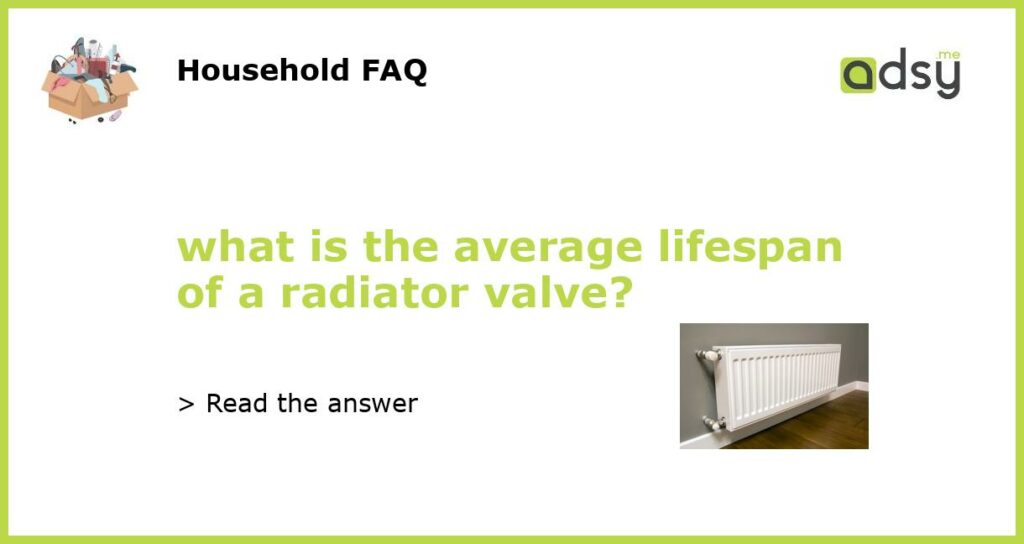Understanding the Lifespan of a Radiator Valve
A radiator valve is an essential component of a heating system, controlling the flow of hot water into the radiator to regulate the temperature of a room. Just like any other mechanical device, a radiator valve has a limited lifespan. Various factors can affect its durability and longevity, including the quality of the valve, the level of maintenance, and the operating conditions. On average, a radiator valve can last anywhere between 10 to 15 years.
Factors Influencing the Lifespan of a Radiator Valve
Several factors play a significant role in determining how long a radiator valve will last. These factors include:
- Quality of the Valve: The quality of the radiator valve is crucial in determining its lifespan. High-quality valves made from durable materials tend to last longer than cheaper alternatives.
- Maintenance: Regular maintenance and servicing can significantly extend the lifespan of a radiator valve. Keeping the valve clean, checking for leaks, and ensuring proper functioning can help prevent premature failure.
- Operating Conditions: The operating conditions, such as temperature fluctuations and water quality, can also affect the longevity of a radiator valve. Extreme heat or cold, as well as corrosive water, can shorten its lifespan.
Signs of a Failing Radiator Valve
As a radiator valve nears the end of its lifespan, certain indicators may suggest that it is starting to fail. These signs include:
- Leaking: If you notice water dripping or pooling around the valve, it may be a sign that the valve is leaking and needs to be replaced.
- Difficulty in Turning: A valve that becomes stiff or difficult to turn may indicate internal damage or wear and tear.
- Inconsistent Heating: If one or more radiators in your home are not heating up properly, it could be a result of a faulty valve.
- Noise: A malfunctioning valve may produce unusual noises, such as hissing or banging sounds.
Extending the Lifespan of a Radiator Valve
While the lifespan of a radiator valve is ultimately determined by various factors, there are steps you can take to help prolong its lifespan:
- Regular Maintenance: Schedule regular maintenance and servicing for your heating system, including checking and cleaning the radiator valves.
- Efficient Use: Avoid constantly adjusting the temperature settings on your radiator valve excessively. Maintaining a consistent temperature can reduce unnecessary strain on the valve.
- Water Treatment: Consider using water treatment additives to minimize the risk of corrosion and scale buildup in your heating system. Consult with a professional or refer to the manufacturer’s recommendations.
When to Replace a Radiator Valve
If you notice any signs of a failing radiator valve or if it has reached the end of its expected lifespan, it is advisable to replace the valve promptly. DIY replacement may be possible for those experienced with plumbing, but consulting a professional heating engineer is recommended for a proper and safe installation. A qualified expert can help you choose the right valve for your system and ensure it is fitted correctly.






